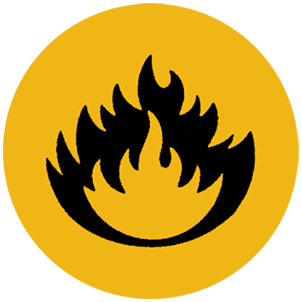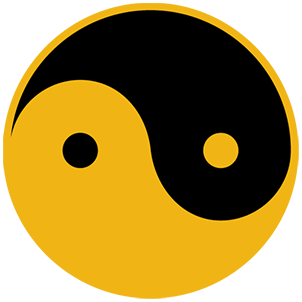Acupuncture & Traditional Chinese Medicine (TCM)
 Acupuncture is one of the modalities of Oriental medicine. Although what is called acupuncture is the West comprises several different therapies (such as moxibustion and cupping), mostly it consists of the insertion of fine needles into the body at specific points shown to be effective in the treatment of specific health problems. These points have been mapped by the Chinese over a period of two thousand years, and there are more than a thousand known acupoints. In the past three decades, electromagnetic research has confirmed the existence and location of these points.
Acupuncture is one of the modalities of Oriental medicine. Although what is called acupuncture is the West comprises several different therapies (such as moxibustion and cupping), mostly it consists of the insertion of fine needles into the body at specific points shown to be effective in the treatment of specific health problems. These points have been mapped by the Chinese over a period of two thousand years, and there are more than a thousand known acupoints. In the past three decades, electromagnetic research has confirmed the existence and location of these points.
Questions & Answers About Acupuncture for Patients:
- Q1: What problems can be treated by acupuncture?
- Q2: How does acupuncture work?
- Q3: Is acupuncture safe?
- Q4: Does it hurt?
- Q5: How many treatments will I need?
- Q6: What criteria should I use in choosing an acupuncturist?
- Q7: What should I know about the proposed treatments?
- Q8: Is there anything I need to do before receiving an acupuncture treatment?
- Q9: Is there anything I need to do while receiving acupuncture?
- Q10: What can I expect after treatment?
Q1: What problems can be treated by acupuncture?
A1: The World Health Organization recognizes acupuntures effectiveness for over 40 common disorders, such as:- Ear, Nose & Throat Disorders - Toothaches, earaches, sinusitis, rhinitis, laryngitis
- Respiratory Disorders - Colds & flues, bronchitis, asthma, allergies, emphysema
- Gastrointestinal Disorders - Food allergies, nausea, indigestion, diarrhea, constipation, ulcers, colitis
- Circulatory Disorders - Hypertension, high cholesterol, arteriosclerosis, angina pertoris
- Urogenital Disorders - Cystitis, stress incontinence, neurogenic bladder, prostatitis, prostatic hypertrophy
- Gynecological Disorders - Menstral irregularity, endometriosis, PMS, infertility, menopausal syndrome
- Musculoskeletal Disorders - Tennis elbow, frozen shoulder, TMJ, sciatica, low back pain, arthritis, carpal tunnel syndrome, fibromyalgia
- Psychoemotional & Neurological Disorders - Depression, anxiety, insomnia, headache, migraine, trigeminal neuralgia, intercostal neuralgia, post-stroke paralysis, dizziness, tinnitus.
Q2: How does acupuncture work?
A2: Modern Western medicine cannot yet explain how acupuncture works. Traditional Asian acupuncture is based on ancient Chinese theories of the flow of qi (a fine, essential energy which nourishes and constructs the body) through distinct channels that cover the body somewhat like the nerves and blood vessels. According to this theory, acupuncture adjusts the flow of qi in the body, leading it to areas where it is insufficient and draining it from areas where it is stuck and/or superabundant. In this way, acupuncture restores the harmonious balance of the body and its parts. In Chinese, there is a saying, "If there is pain, there is no free flow; it there is free flow, there is no pain." Acupuncture promotes and reestablishes the free flow of qi.A3: When performed by a competently trained, licensed professional, acupuncture is extremely safe. All licensed acupuncturists today uses individually packaged, sterile, disposable needles. So there is virtually no chance of infection of contagion.
A4: Acupuncture needles are typically not much thicker than a hair, and their insertion is practically painless. It is nothing like receiving an ordinary injection. In some cases, you will not even know the needles are in place. In others, there may be some tingling, warmth, heaviness, or a feeling of the qi moving up and don the channels. Most people find acupuncture extremely relaxing, and many fall asleep during treatment.
Q5: How many treatments will I need?
A5: That depends on the duration, severity, and nature of your complaint. You may need only a single treatment for an acute condition. A series of 5-10 treatments may resolve many chronic problems. Some degenerative conditions may require many treatments over time. To help reduce the number of treatments, your practitioner may suggest dietary modifications, specific exercise regimes, relaxation techniques, self-massage, and/or Chinese herbal medicines, all of which may help to increase the efficacy of acupuncture.
Q6: What criteria should I use in choosing an acupuncturist?
A6: When performed by a competently trained, licensed professional, acupuncture is extremely safe. All licensed acupuncturists today uses individually packaged, sterile, disposable needles. So there is virtually no chance of infection of contagion.
Q7: What should I know about the proposed treatments?
A7: Your practitioner will explain the nature of your problem in Oriental medical terms and what treatment he or she is recommending. Your practitioner will tell you what benefits and risks there are to the proposed treatments and what other treatment options are available to you through this practitioner or by referral to another practitioner or physician.
Q8: Is there anything I need to do before receiving an acupuncture treatment?
A8: The following suggestions will help you get the maximum benefits from your treatment:- Wear loose clothing. Women should not wear one-piece dresses. Avoid wearing tight stockings.
- Avoid treatment when excessively fatigued, hungry, full, emotionally upset, or shortly after sex.
Q9: Is there anything I need to do while receiving acupuncture?
A9: Relax.- There is no need to be frightened. Ask your practitioner any questions you have along the way so that you can get the most benefit possible from the treatment.
- Do not change your position or move suddenly. If you feel uncomfortable, tell your practitioner.
A10: Patients often experience dramatic results in the first treatment. Some patients experience immediate total or partial relief of their pain or other symptoms. This relief may last or some may pain may return. In a few cases, there may be no immediate relief only to notice the pain diminish over the next couple of days. Generally, you should expect to feel better
